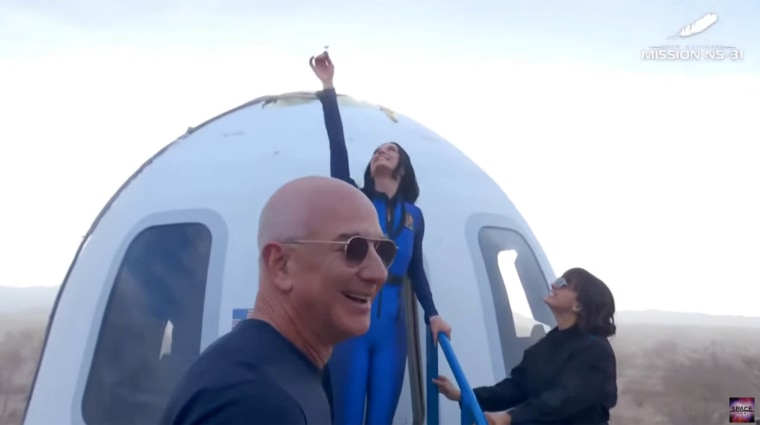Can Katy Perry call herself an astronaut? No, says the secretary of transportation, and he
April 18, 2025
Blue Origin’s all-female crew successfully made it to space, but when it comes to whether they are considered astronauts, former federal guidelines are bringing them back down to Earth.
Earlier this week, Blue Origin’s star-studded female flight crew, which included singer Katy Perry and journalist Gayle King, reached the edge of space and entered orbit. Their automated flight marked a milestone for commercial space travel but also sparked controversy and discussion along the way, especially over what it truly takes to earn the title of “astronaut.”
In an April 17 post on X, U.S. Secretary of Transportation Sean Duffy described the team as “brave and glam” but underscored why the team lacks the achievements and criteria it takes to be recognized by the Federal Aviation Administration (FAA) as astronauts, a designation that has a high bar.
“The U.S. commercial space industry is an inspiring project which showcases American ingenuity and exceptionalism,” Duffy wrote in his post. “But the last FAA guidelines under the Commercial Space Astronaut Wings Program were clear: Crewmembers who travel into space must have ‘demonstrated activities during flight that were essential to public safety, or contributed to human space flight safety.’”
The flight’s six women — which, in addition to Perry and King, included aerospace engineer Aisha Bowe, civil rights activist Amanda Nguyen, film producer Kerianne Flynn, and journalist Lauren Sánchez, who is notably engaged to Blue Origin founder Jeff Bezos — are highly accomplished in their respective fields.
But when it comes to their space journey, Duffy says they do not meet the FAA’s criteria.
“The crew who flew to space this week on an automated flight by Blue Origin were brave and glam, but you cannot identify as an astronaut,” continued Duffy’s post about the proper terminology regarding what they achieved. “They do not meet the FAA astronaut criteria.”
The answer to this varies depending on who you ask.
The FAA’s now-retired Commercial Space Astronaut Wings Program required travelers to meet two standards: flown at least 50 miles above Earth and performed duties essential to public or human spaceflight safety.

The FAA’s Commercial Space Astronaut Wings Program was established in 2004 and officially ended in 2021 in anticipation of the commercial space tourism era. Still, the Wings Program continues to maintain a complete list of FAA Commercial Space Astronaut Wings recipients. Bowe, Nguyen, Flynn, King, Perry, and Sánchez are all recognized on the website but are not listed as recipients of the FAA’s Commercial Space Astronaut Wings, as none of them held operational roles while on board.
Outside FAA standards, NASA defines an astronaut as someone selected to join its astronaut corps and who has made “star sailing” their profession.
Meanwhile, Merriam-Webster also uses profession as a defining factor, noting the term refers to “a person whose profession is to travel beyond Earth’s atmosphere.” In its broader definition, the dictionary defines an astronaut as “any person who travels beyond the Earth’s atmosphere.”
Search
RECENT PRESS RELEASES
Related Post

